Key Takeaways
- Rucking (walking with a weighted backpack) builds strength and endurance with less joint impact than running.
- Running burns more calories in less time and delivers strong cardiovascular and mental health benefits.
- Rucking targets the upper body, core, and legs, while running primarily engages the lower body.
- Rucking is ideal for beginners or those wanting strength and cardio without high impact; running suits those chasing speed, calorie burn, or an endorphin rush.
- Combining both—rucking for low-impact strength and running for cardio intensity—creates a balanced, enjoyable fitness routine.
Do you ever find yourself torn between lacing up your best runners for a jog or strapping on a rucksack with some weight when you want to go do some exercise?
You’re not alone!
With both rucking and running having carved out very distinct and prominent places in today's workout culture. We thought it would be great timing to spill the tea on all things rucking versus running to help everyone be able to make an informed decision on which one will work best for them based on their fitness goals.
Let’s start by talking about rucking!
Rucking involves walking or hiking while wearing a weighted backpack — a.k.a "rucksack". Its history traces back to the military, where soldiers would use rucking to build their strength and endurance while minimising the risk of injury. With rucking, you not only get a solid workout, but it’s also a fantastic way to explore the great outdoors!
Running on the other hand, is the act of propelling yourself forward at a speed faster than a brisk walk. Whether you’re jogging or sprinting on a track, running is a great way to build endurance and cardiovascular health.
Let's break down the benefits of both.
Benefits of Rucking:
- Strength Building: Rucking engages your upper body, core, and legs, transforming a simple walk into what can be best described as a full-body workout.
- Low Impact: Adding weight to walking makes rucking a little easier on the joints compared to running.
- Versatile and Social: You can ruck anywhere you can walk, you can go solo and it's easy to do with friends as well as you can chat the whole time.
Benefits of Running:
- Caloric Burn: Running on average burns more calories than rucking (but they both can deliver 2-4 times the burn of walking).
- Heart Health: It’s a fantastic way to strengthen your heart and lungs, improving overall cardiovascular fitness.
- Mental Highs: Ever heard of the “runner’s high”? That’s the endorphin rush that makes runners keep coming back, mood is boosted and stress reduced.

With both having great overall benefits for health, let's dive into the key differences between running and rucking.
- Impact Level: Rucking is generally lower impact than running, which can be a crucial factor for those with previous injuries or joint issues. You can enjoy rucking without the heavy pounding that comes with running.
- Muscle Engagement: Running primarily targets the legs, while rucking gives your upper body a workout as well. With rucking, you’re lifting weight, which helps build not just endurance but also strength, particularly in your back and shoulders.
- Caloric Expenditure: While both activities can torch calories, running typically burns more calories in a shorter amount of time. However, adding weight to your ruck can close that gap significantly!
- Equipment Needs: Running requires minimal equipment — just a good pair of running shoes. Rucking, on the other hand, needs a sturdy rucksack and some weights.
With all that in mind, what are the ideal scenarios for both rucking and running?
Who Should Consider Rucking?
- Beginners looking for a low-impact workout to start their health journey.
- Individuals wanting to build strength while at the same time improving cardio.
- Those that want to strength train but hate the gym.
Who Might Prefer Running instead?
- Seasoned athletes seeking a challenge.
- Those focused solely on weight loss and calorie burn.
- Anyone seeking that adrenaline rush that comes with running.

Can you combine the two?
Like the famous Old el Paso ad says “Why not have both?”
Incorporating rucking and running into your fitness routine as a way of active recovery is an amazing plan that is utilised by athletes worldwide. Outside of offering some variety in training, it can be a great way to walk off DOMS (delayed onset muscle soreness) in a way thats way more exciting (and beneficial) than just a walk.
And rucking allows you to hang with the fittest people you know in an equal setting, just load up the fittest with the most weight in their rucksack and scale down toward the least fittest.
It's definitely worth mixing a rucking and running into your routine if you are able, which leads us to the original question … which is best for you: rucking or running?
The answer is both, but it largely depends on your goals, personal preference, and your current physical condition. Remember, the best workout is one that you enjoy and can stick with over an extended period of time, so do what makes you happiest.
Whether you're drawn to the strength-building benefits of rucking or the exhilarating calorie burn and dopamine hit of running, both options have their unique benefits. If you’re leaning towards trying rucking, don’t forget to check if we have a RUKClub meetup heading your way soon where you can try out our high-quality RUKSAK’s and RUKVEST’s to see if you like them.



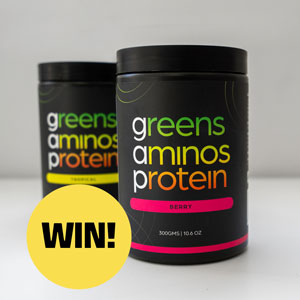
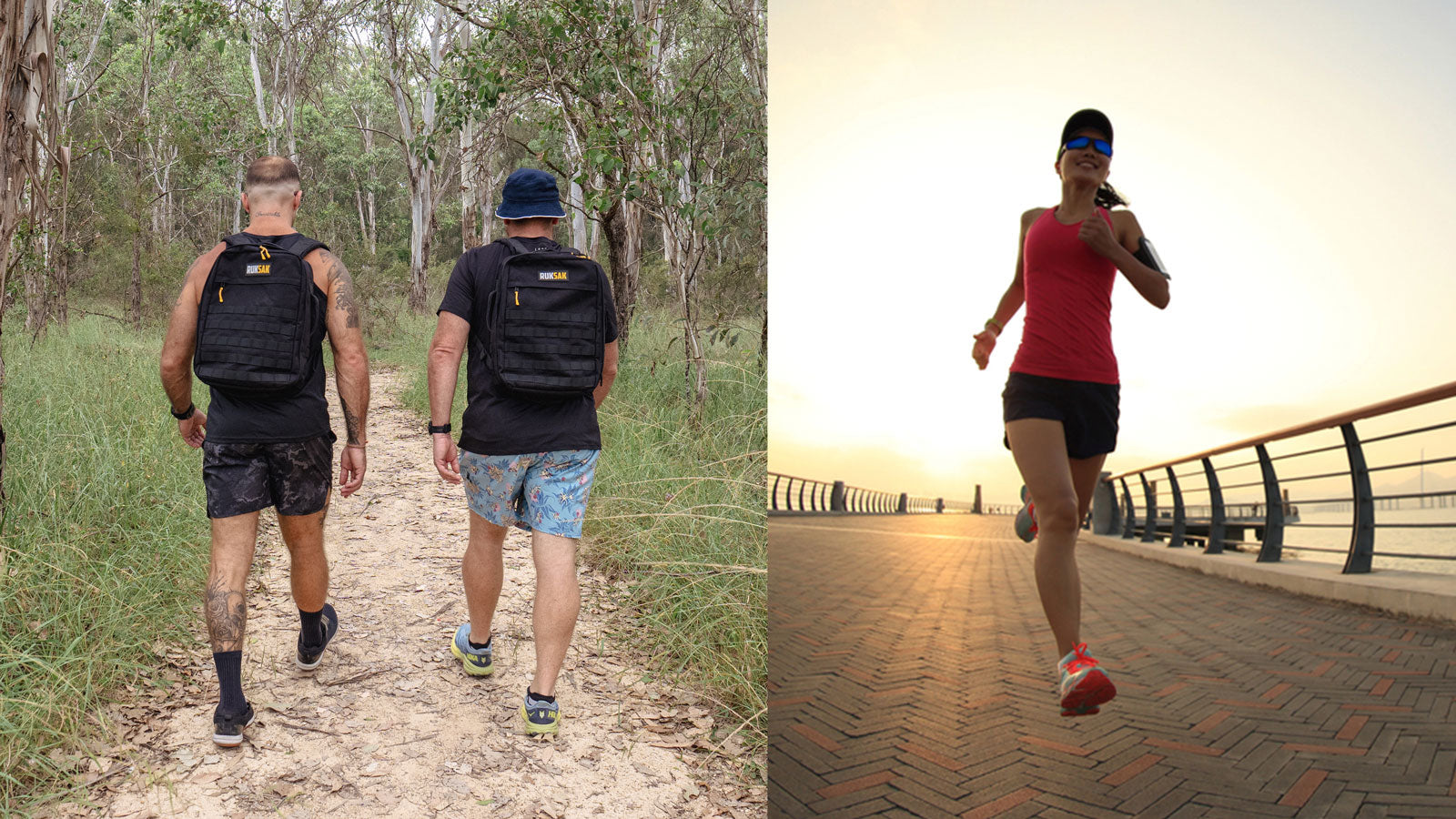
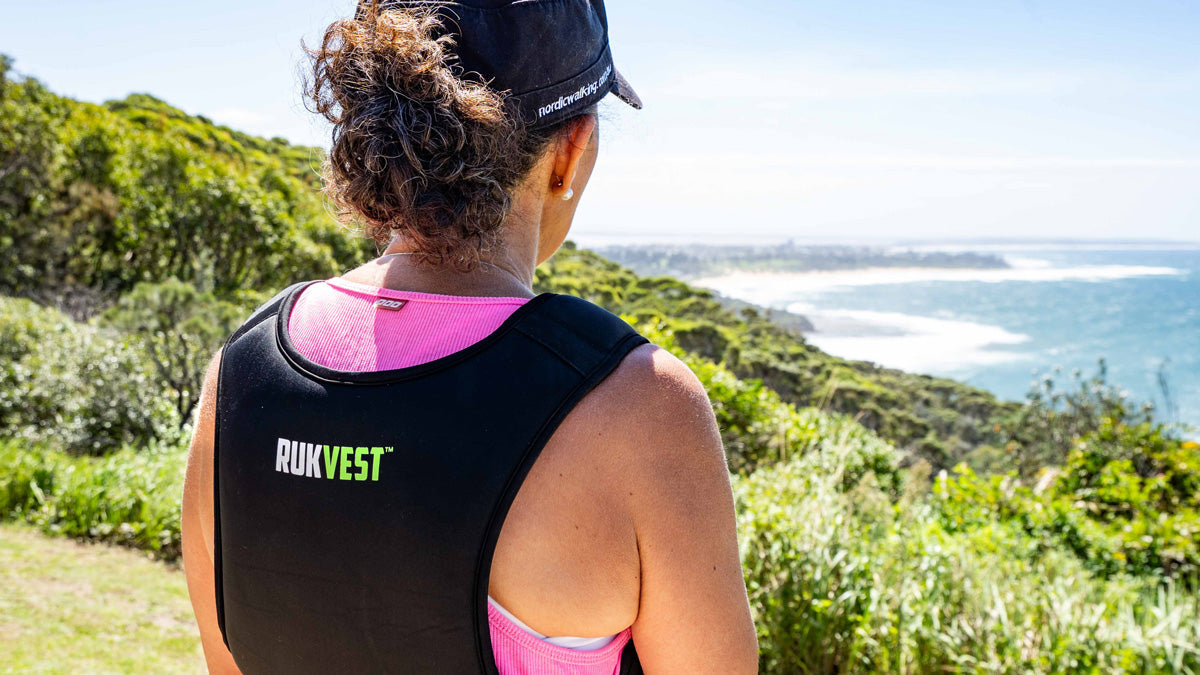
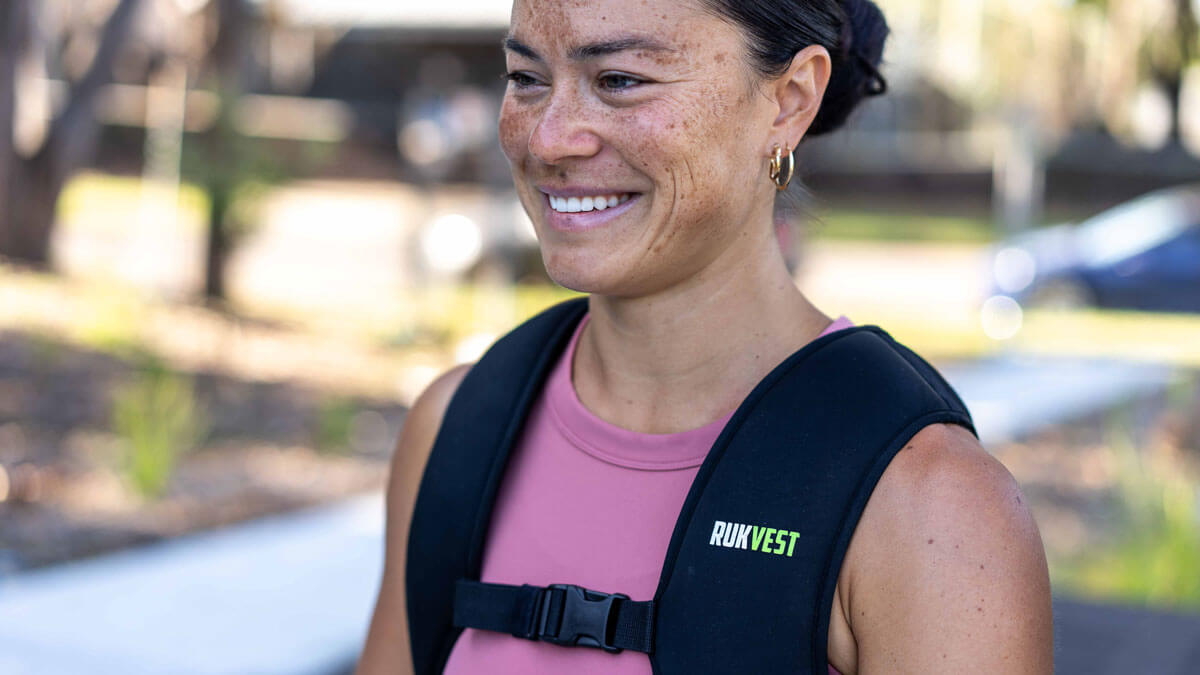
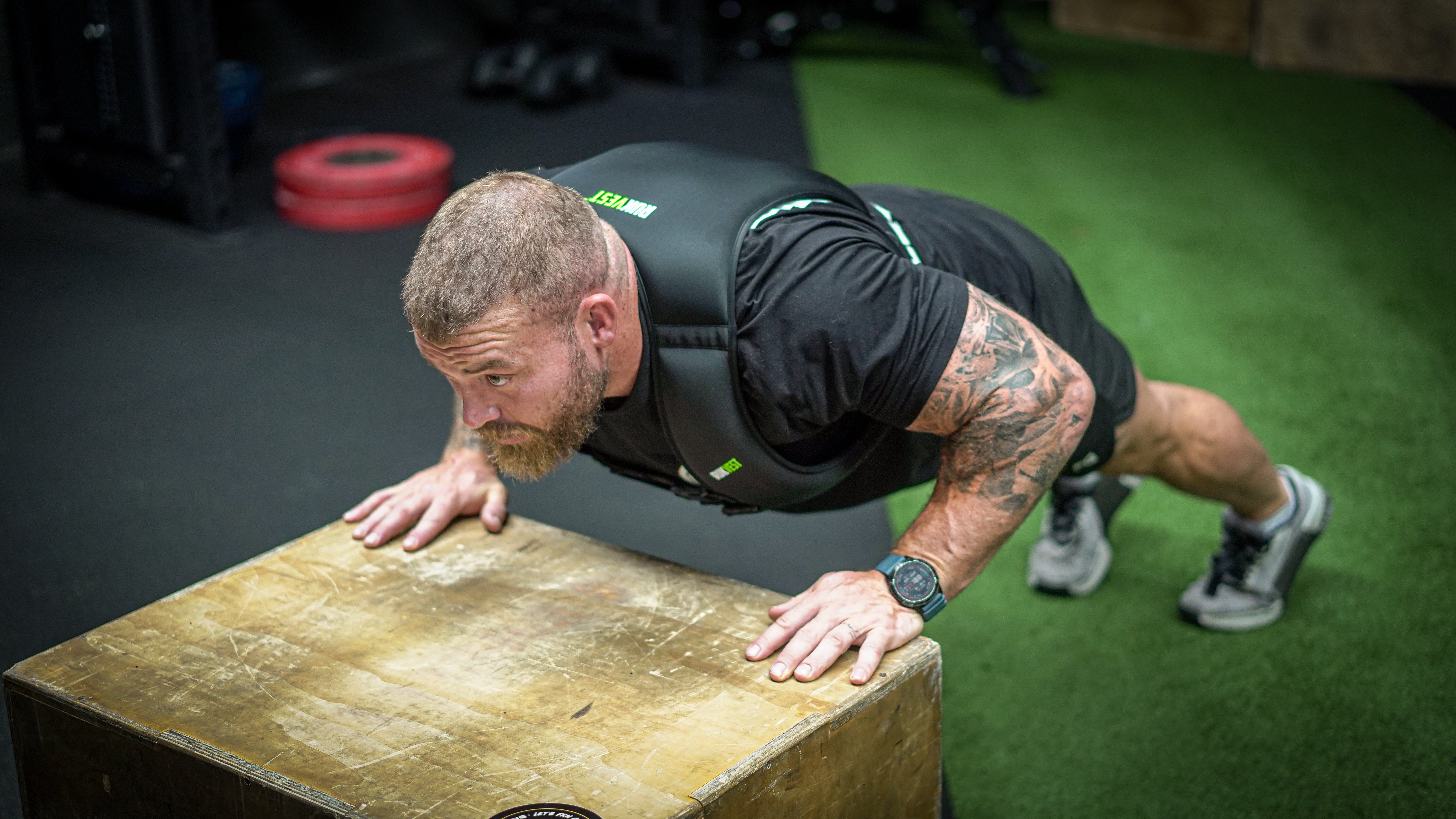
Share:
Upgrade Your Daily Walk: The Simple Trick to Burn More Calories and Hit 10k Steps
Managing high cortisol levels while exercising for fat loss